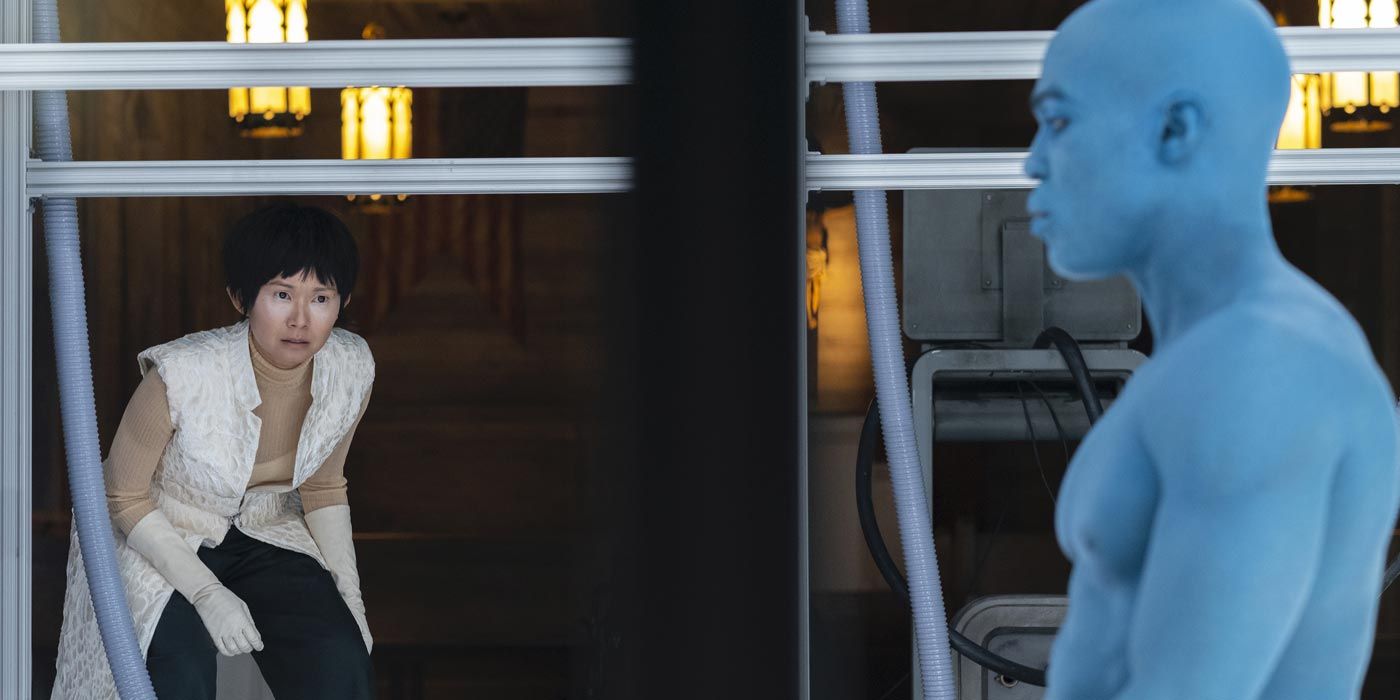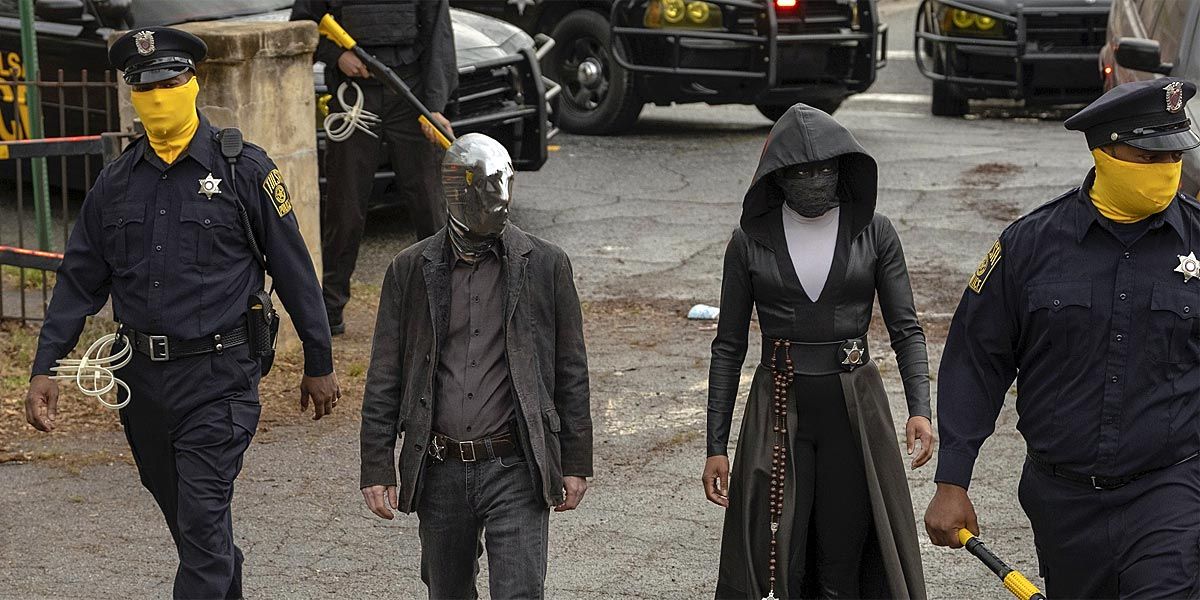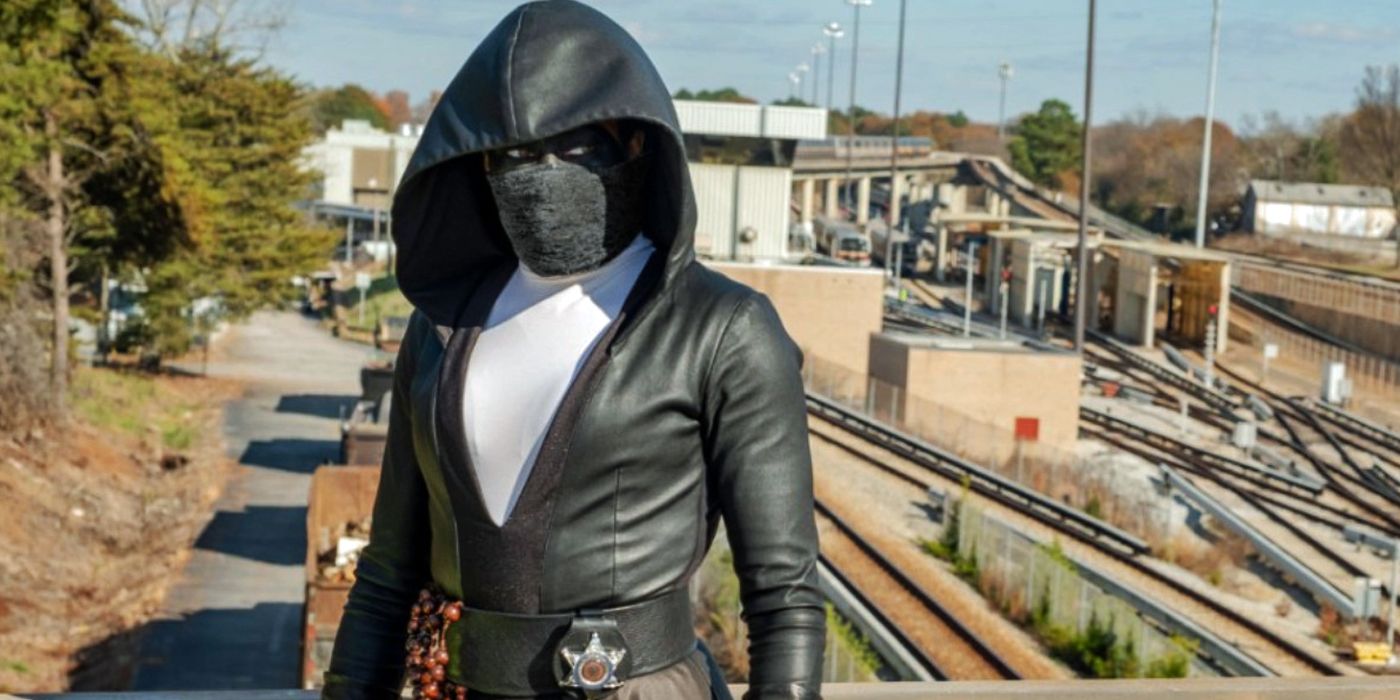HBO's Watchmen is an ambitious piece of television, taking a seminal comic book and using it to tackle some of the biggest societal issues in the national conversation. The integrity of the drama was impressive, but even after the season finale the creators seem intent on displaying more. How do they do that? By not making a second season, apparently.
Fans of Watchmen waited for weeks in anticipation for word from series creator Damon Lindelof as to whether the series would continue. HBO made it clear early on that it wouldn't do the series without Lindelof, so the responsibility for the decision seemed to fall squarely on his shoulders. Finally, Lindelof gave the confirmation everyone was waiting for: He's not doing it.
While he made it clear HBO would have his blessing to continue the show with new creators, the cable network seem to indicate there was no Watchmen without Lindelof (although programming president Casey Bloys now suggests there may be some wiggle room). The sum result of those two decisions is that the Watchmen we have is the Watchmen we're going to get... again.
Some fans of the original comic were wary of the TV continuation as soon as it was announced. The comic's writer, Alan Moore, is always notoriously ill-tempered when it comes to adaptations of his works in general and Watchmen in particular. Even beyond that, attempts at expanding on or adapting the graphic novel in the past often fell flat. The 2009 Zack Snyder-directed film holds a tepid reputation, while the Before Watchmen prequel comic series was widely panned.
With that background in mind, it's almost a miracle that HBO's Watchmen thrived so well across so many different metrics. It would have been so easy for the series to be a simple cash cow, either directly adapting the comic without adding any new dimensions or features or else poorly aping its style and thematics in a half-baked imitation of the original. Instead what Lindelof and his team accomplished was a continuation of the comic's story that felt at once true to the original and transcendent in terms of its subject matter.
Race was always are shockingly absent thematic in the comic book series, otherwise so far-reaching in its scope. Lindelof's Watchmen took the same lense of the source material and applied it toward the history of race and racism in the United Stated with full focus. The result was a fleshed out and multi-dimensional treatment of the question that accepted the realities along with the fact that there were no easy answers. And pulling all of that off may as well have been a miracle.
With all of that in consideration, HBO and Lindelof alike should be applauded for the restraint in letting the sole season of Watchmen stand on its own. Any more of it would only water down the potency of the first season, and any announcements of a return would only create the same anxieties in fans about whether or not the creators could pull it off. Instead, the show is allowed to stand on its own as an artistic statement, intended from the outset to be the precise length it already is, and finely tuned toward the purpose it sets out for itself.
Naturally, the drawback to such a decision is that there are plot threads left without continuation. To the fans hoping for an additional season, there are still burning questions waiting to be answered from the very big to the very small. Most notable of all would be the cliffhanger the entire series ended on, with Regina King's Sister Night holding her foot mere centimeters from the surface of her pool ready to test whether or not she inherited Dr. Manhattan's powers. Even aside from that are other questions, such as the trial of Adrian Veidt or the identity of Lube Man, but they'll remain unresolved without a 2nd season.
And that's okay! It would be almost impossible to end every single plot thread in such an utterly satisfying way that nobody had any more questions or did not want to see any more. Instead, Lindelof opted for an ending that lets the lingering questions be part of the work itself and the effect it inspires on viewers. After all, there could be no ending truer to the original graphic novel than to end the story at the exact point where audiences are dying to not what will happen next. Actually answering such big questions would offer only a brief satisfaction, but the integrity and restraint to never do so will last forever.



